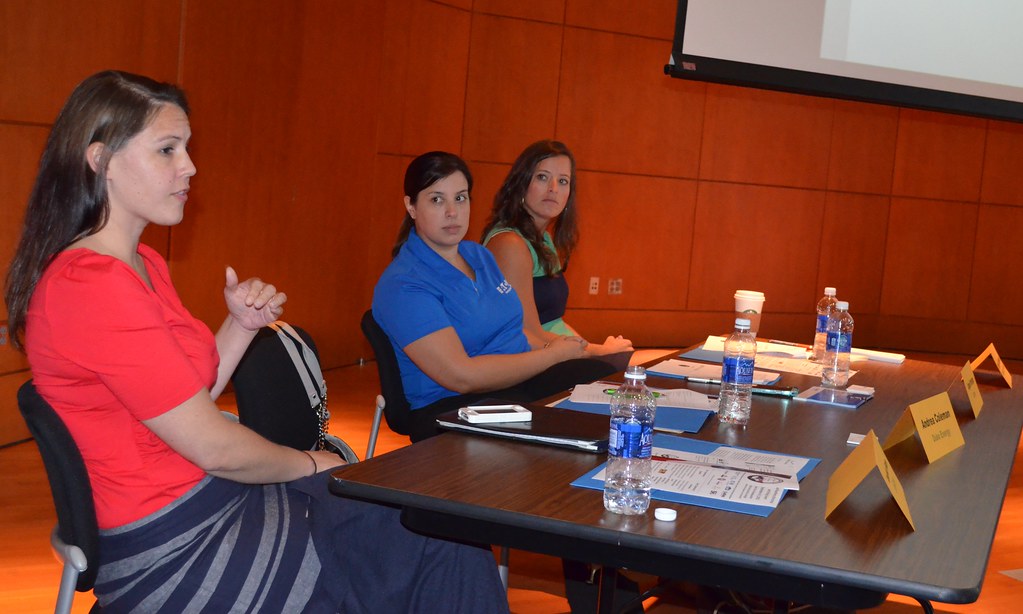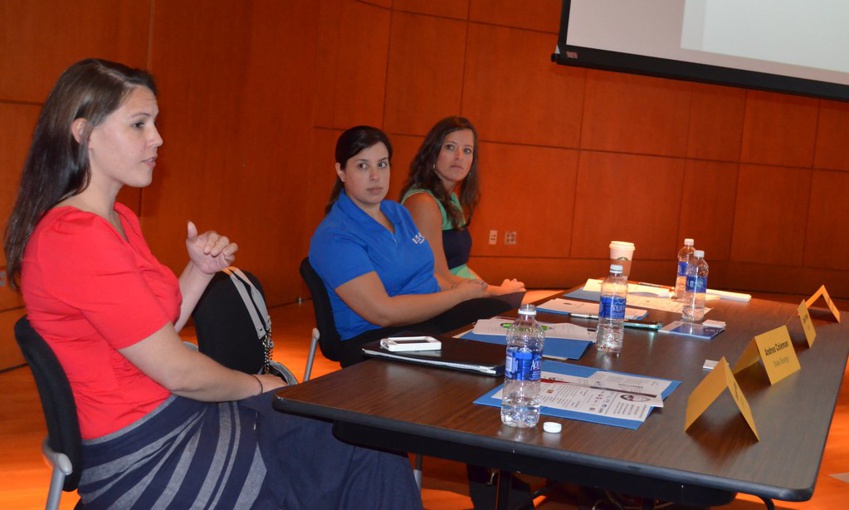Marsha Smith, a 29-year-old U.S. Army veteran, decided to retire her uniform and chase a new dream: becoming an electrical engineer. With the backing of her husband, family, and the GI Bill, she began attending classes at American Military University. However, she soon discovered she was expecting a child. Despite the challenges of balancing academics, motherhood, household responsibilities, and work, she remained steadfast in her resolve.
The birth of her daughter, Harley, led Smith to question the timing of her educational pursuit. Nevertheless, she recognized the necessity of an education for her engineering aspirations. She adopted a day-by-day approach to manage her responsibilities.
In 2022, Smith graduated and secured a position at Duke Energy in Plainfield, Indiana, where she had previously interned. She found her niche in Grid Management, working with other engineers to deploy smart technology that ensures consistent power supply for customers.
The smart grid system, capable of circumventing issues to prevent customer outages, proved effective in preventing over 1.4 million outages in 2022. This resulted in saving more than 7.2 million hours of customer outage time across the six states served by Duke Energy.
Duke Energy, which employs nearly 2,400 military veterans, values their contributions, according to Ron Wages, Director of Talent Acquisition and Workforce Development. Wages encourages his recruitment team to collaborate with military organizations to attract skilled workers from diverse backgrounds. These efforts support the company’s goal of achieving net-zero carbon emissions by 2050.
Wages believes that veterans bring a unique understanding of safety, process adherence, and team care, which are crucial for providing safe, reliable, affordable, and increasingly clean energy.
Smith, who served as a battle captain in the Army’s tactical communications network, understands the significance of dependable service. She provided air support to service members in the Middle East, assisting them in navigating through Abu Dhabi, the capital of the United Arab Emirates, and Bahrain, located east of Saudi Arabia.
“Sharing intelligence data is critical to successful missions on the battlefield,” she said. “That’s not possible without the ability to communicate.”
Following her assignment in Afghanistan for Operation Enduring Freedom, Smith completed two tours of duty in South Korea. One of these tours involved safeguarding the Demilitarized Zone that separates North and South Korea.
“Meeting so many diverse people of other backgrounds, nationalities and ethnicities taught me to adapt, to understand people’s unique needs and how best they receive information,” Smith said. “There’s also that camaraderie factor. You support your team when they need help.”
Marsha Smith’s colleague, electrical engineer Gary Fry, humorously noted that Smith’s ability to unify the team is somewhat uncommon among engineers. “We are a diverse group,” Fry commented. “Some of us are more technically inclined than socially adept, which I refer to as ‘pencil heads.’ Marsha, on the other hand, combines meticulousness with a lively and cheerful demeanor, which helps keep our team engaged.”
Rick Grant, vice president of grid operations at Duke Energy, believes that an engaged workforce is key to success. The company supports veterans like Smith through an employee resource group named Together We Stand, which aims to facilitate their transition to civilian life. Similarly, the company offers support to team members who join through internships and co-ops.
These programs enable the company to make more informed hiring decisions, while students gain insights into what working at Duke Energy would be like. “An interview is a two-way street,” Grant explained. “While our teams evaluate if a candidate is a good fit, the students get a glimpse behind the scenes. They interact with other engineers, work on projects, and acquire new skills while experiencing our company culture – the intangibles you can’t find by researching a company online. That’s as attractive as anything we have to offer.”
As an intern, Smith seized the opportunity to observe and inquire. She saw it as a series of small windows to demonstrate her potential value to the team. Mike Simms, manager of grid management in the Midwest and a recruiter of engineers, took notice. “We’ve hired many talented engineers from that program, including three of the eight engineers on my team,” Simms shared. “They’ve all performed well, developed new skills, and earned promotions to higher roles in Grid Management. Other engineering groups hire as well. It’s been an excellent source for full-time hiring.”
In addition to her work on the smart grid in Indiana, Smith provides daily operations support for Duke Energy’s Distribution Control Center, where a team of about 90 people communicates with customers and field technicians. “We assist the DCC by investigating equipment failures or researching customer issues, fixing what we can remotely or ensuring the right team gets out there,” Smith explained. “It really suits my personality.”
Smith’s passion for her work began in high school in the Four Corners of New Mexico. Her father, a construction manager at an energy company who worked with other engineers, sparked her interest in electronics and how components come together to make something work.
Smith’s role as an electrical engineer combines integrated project management and system interface functionality. However, she acknowledged that it wasn’t easy, reflecting on societal expectations that encouraged her to follow a different path.
“The women in my family haven’t explored a degree in something as technical as electrical engineering. Many were stay-at-home moms,” Smith said. “So, there’s a natural inclination to question if I can be both a great mom and a successful engineer. I realize now that my journey has been to challenge my own mentality. Because at one point, I thought I’d never get here.”
The birth of her daughter, Harley, led Smith to question the timing of her educational pursuit. Nevertheless, she recognized the necessity of an education for her engineering aspirations. She adopted a day-by-day approach to manage her responsibilities.
In 2022, Smith graduated and secured a position at Duke Energy in Plainfield, Indiana, where she had previously interned. She found her niche in Grid Management, working with other engineers to deploy smart technology that ensures consistent power supply for customers.
The smart grid system, capable of circumventing issues to prevent customer outages, proved effective in preventing over 1.4 million outages in 2022. This resulted in saving more than 7.2 million hours of customer outage time across the six states served by Duke Energy.
Duke Energy, which employs nearly 2,400 military veterans, values their contributions, according to Ron Wages, Director of Talent Acquisition and Workforce Development. Wages encourages his recruitment team to collaborate with military organizations to attract skilled workers from diverse backgrounds. These efforts support the company’s goal of achieving net-zero carbon emissions by 2050.
Wages believes that veterans bring a unique understanding of safety, process adherence, and team care, which are crucial for providing safe, reliable, affordable, and increasingly clean energy.
Smith, who served as a battle captain in the Army’s tactical communications network, understands the significance of dependable service. She provided air support to service members in the Middle East, assisting them in navigating through Abu Dhabi, the capital of the United Arab Emirates, and Bahrain, located east of Saudi Arabia.
“Sharing intelligence data is critical to successful missions on the battlefield,” she said. “That’s not possible without the ability to communicate.”
Following her assignment in Afghanistan for Operation Enduring Freedom, Smith completed two tours of duty in South Korea. One of these tours involved safeguarding the Demilitarized Zone that separates North and South Korea.
“Meeting so many diverse people of other backgrounds, nationalities and ethnicities taught me to adapt, to understand people’s unique needs and how best they receive information,” Smith said. “There’s also that camaraderie factor. You support your team when they need help.”
Marsha Smith’s colleague, electrical engineer Gary Fry, humorously noted that Smith’s ability to unify the team is somewhat uncommon among engineers. “We are a diverse group,” Fry commented. “Some of us are more technically inclined than socially adept, which I refer to as ‘pencil heads.’ Marsha, on the other hand, combines meticulousness with a lively and cheerful demeanor, which helps keep our team engaged.”
Rick Grant, vice president of grid operations at Duke Energy, believes that an engaged workforce is key to success. The company supports veterans like Smith through an employee resource group named Together We Stand, which aims to facilitate their transition to civilian life. Similarly, the company offers support to team members who join through internships and co-ops.
These programs enable the company to make more informed hiring decisions, while students gain insights into what working at Duke Energy would be like. “An interview is a two-way street,” Grant explained. “While our teams evaluate if a candidate is a good fit, the students get a glimpse behind the scenes. They interact with other engineers, work on projects, and acquire new skills while experiencing our company culture – the intangibles you can’t find by researching a company online. That’s as attractive as anything we have to offer.”
As an intern, Smith seized the opportunity to observe and inquire. She saw it as a series of small windows to demonstrate her potential value to the team. Mike Simms, manager of grid management in the Midwest and a recruiter of engineers, took notice. “We’ve hired many talented engineers from that program, including three of the eight engineers on my team,” Simms shared. “They’ve all performed well, developed new skills, and earned promotions to higher roles in Grid Management. Other engineering groups hire as well. It’s been an excellent source for full-time hiring.”
In addition to her work on the smart grid in Indiana, Smith provides daily operations support for Duke Energy’s Distribution Control Center, where a team of about 90 people communicates with customers and field technicians. “We assist the DCC by investigating equipment failures or researching customer issues, fixing what we can remotely or ensuring the right team gets out there,” Smith explained. “It really suits my personality.”
Smith’s passion for her work began in high school in the Four Corners of New Mexico. Her father, a construction manager at an energy company who worked with other engineers, sparked her interest in electronics and how components come together to make something work.
Smith’s role as an electrical engineer combines integrated project management and system interface functionality. However, she acknowledged that it wasn’t easy, reflecting on societal expectations that encouraged her to follow a different path.
“The women in my family haven’t explored a degree in something as technical as electrical engineering. Many were stay-at-home moms,” Smith said. “So, there’s a natural inclination to question if I can be both a great mom and a successful engineer. I realize now that my journey has been to challenge my own mentality. Because at one point, I thought I’d never get here.”


 From Army Veteran to Electrical Engineer: Marsha Smith’s Journey at Duke Energy
From Army Veteran to Electrical Engineer: Marsha Smith’s Journey at Duke Energy





 Companies
Companies